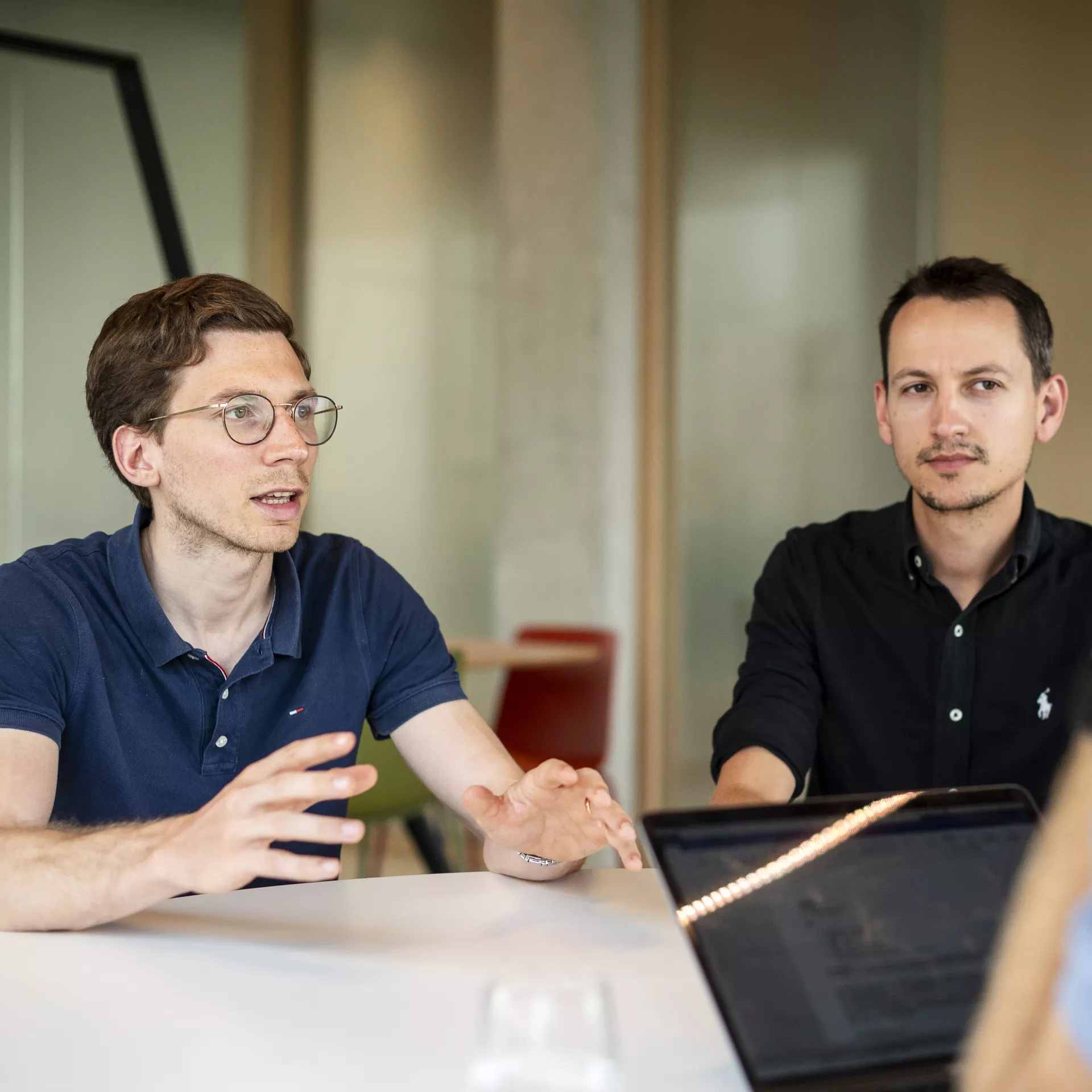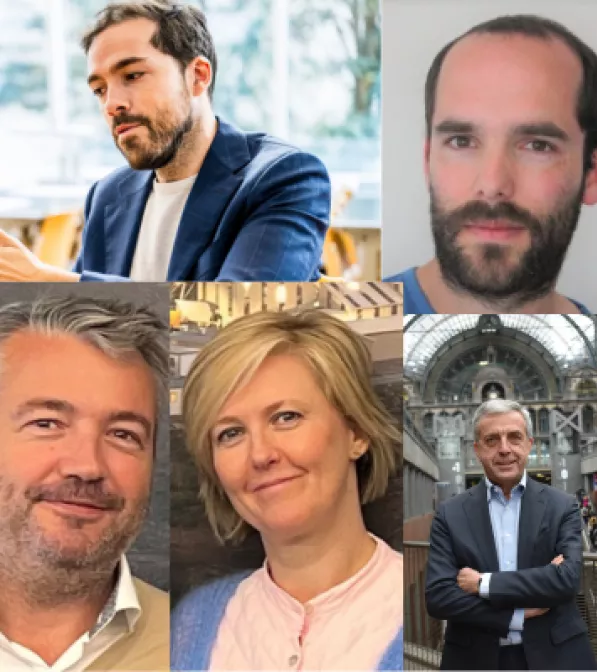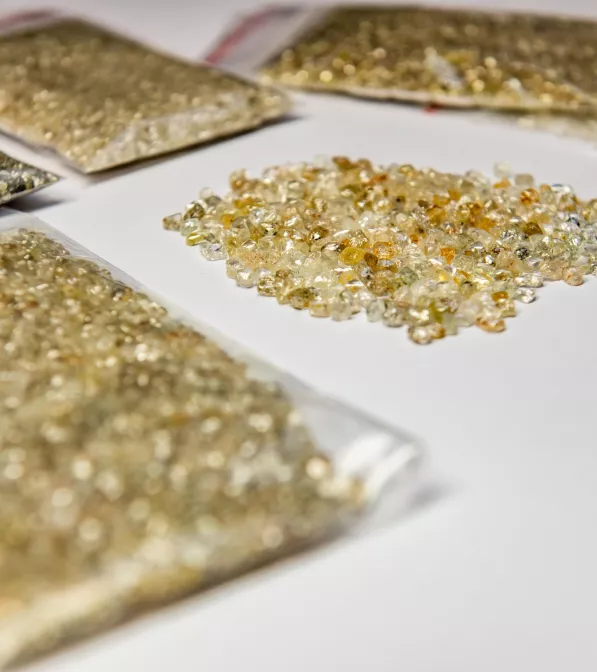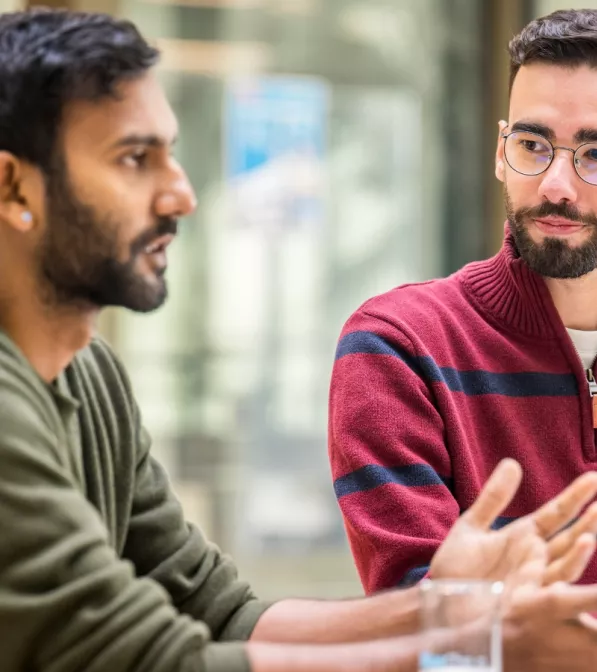"Our innovation? Oxylum converts CO2 into sustainable products for the chemical industry"
© Jonathan Ramael

- Home
- News & events
- "Our innovation? Oxylum converts CO2 into sustainable products for the chemical industry"
Oxylum, a spin-off of the University of Antwerp, is located in the open innovation centre BlueApp at Blue Gate Antwerp. Oxylum is developing a breakthrough technology to convert CO2 into chemical building blocks, such as formic acid or ethylene, using renewable energy. These green molecules can be used in the broad chemical industry and in consumer goods, ultimately leading to a drastic reduction in net CO2 emissions.
Hi Bert, what can you tell us about the beginnings of Oxylum?
Bert: “Sander and I both did our PhDs at the University of Antwerp. During my research I already focused on how we can turn the huge CO2 emissions, a huge waste stream, into something sustainable. To realise this innovation project, we take the energy from electricity and put it into CO2. This triggers a reaction and produces components that can be used in the port of Antwerp to make new products.”
Sander: “I became involved when Bert wanted to develop the necessary reactors for this process. We got aware of the great demand for such solutions, both from society and from industry. In Europe, the development of this type of technology was still in its infancy, so we decided to take the plunge and set up a company. We entered into a licensing agreement with the university for the technology and continued as a spin-off.”
Oxylum received financial support from the city. What have you achieved with it?
Bert: "Thanks to this support, we were able to set up an initial laboratory and achieve our first proof of concept. We were also able to hire staff, which allowed us to do a lot of testing. For Oxylum, it was the right push at the right time to continue growing.”
Is there any interest from the industry? Are there any customers yet?
Bert: “It's too early to talk about customers, but we are in constant contact with potential end users. These are usually large companies who will only make a purchase if we can supply a certain volume. Building this network helps us to develop our technology in a very targeted way, tailored to the needs of the industry.”
What is the next step?
Sander: “Scaling up is our main focus now. We currently have one reactor, but we want to expand with multiple reactors. The technological challenge lies in this scaling up: the effects change because the liquids and gases have to be distributed over a larger area. We are in the development phase to achieve this scale-up and get to what we call a minimum viable product.”
How important is BlueApp to Oxylum?
Sander: "Being able to rent a fully equipped lab is a huge luxury. If you have to set something up yourself, the costs add up quickly.”
Bert: “Here we are completely unburdened. We don't have to worry about permits, lift inspections, maintenance, insurance... so we can concentrate on our solution. Moreover, BlueApp offers a very competitive rental price.”
Sander: “Antwerp offers an ideal ecosystem for sustainable chemistry. Here you can start small with a lab and a desk. As you grow, you can expand into the demo hall. The next step is NextGen District in the port, where you can run a full pilot project. Finally, you can scale up to the big chemical players in the port. Whatever stage you are at, Antwerp offers the perfect growth path.”
How do you see Oxylum continuing to grow in this ecosystem?
Bert: “We have the ambition to set up industrial projects on the sites of large companies in the coming years. That’s how we can make a real impact on the CO2 problem. Not that we think we have the silver bullet. We see our technology more as a piece of a giant jigsaw puzzle. But we are convinced that our piece of the puzzle can make a valuable contribution.”
Sander: “We can't do it alone. You need a whole value chain: companies that are strong in CO2 cleaning, conversion, storage and transport. All these links are essential.”
Bert: “As we said, we use electricity in our process, so we also need renewable energy sources such as solar and wind power. The electricity grid has to be well balanced to deal with peaks and troughs. Cooperation is essential to make it all work. But we are doing it because we are determined to play our part in solving the CO2 problem.”
Then we will leave you to your work. Thanks for the interview and good luck with Oxylum
Autumn 2024 calls for the city to innovate again
In November, the city will launch another call for innovation in digital, circular or health.
Follow us on linkedin or subscribe to our newsletter to find out more about this call.


